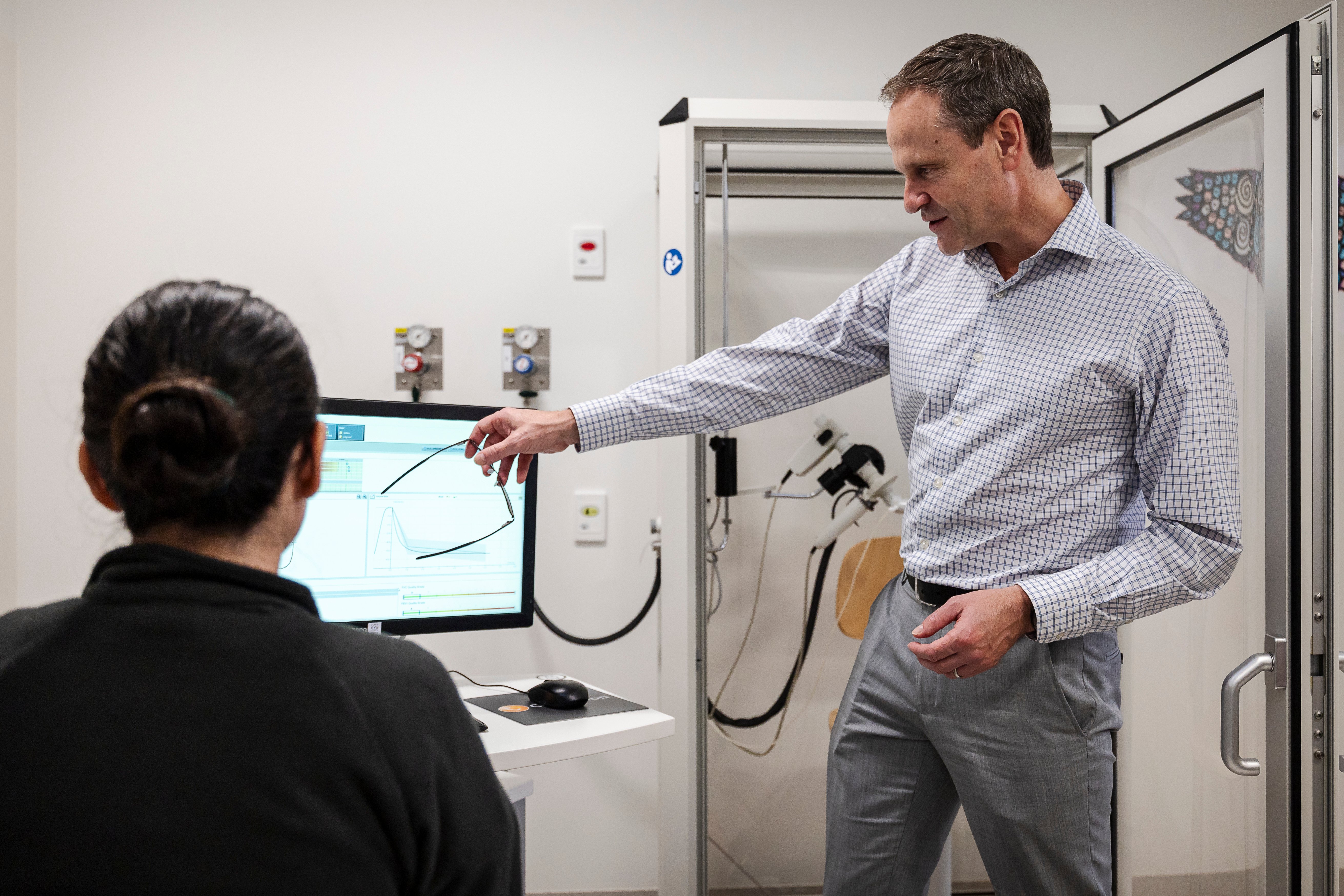
Credit: Stephen Heath | Supplied: PCHF
A new paper published in Frontiers in Pediatrics offers clinicians a practical roadmap to improve healthcare outcomes for Indigenous children, starting with respect, communication, and cultural understanding.
Co-authored by Dr André Schultz, Head of the Wal-yan Respiratory Centre, and the team at the NHMRC Centre for Research Excellence (CRE) in paediatric lung health, the paper outlines evidence-based principles for delivering culturally safe care to Indigenous families.
While founded in respiratory medicine, the guidance is applicable across all areas of healthcare.
“This paper is about what we’ve learned, through research and experience, about how non-Indigenous clinicians can interact better with Indigenous patients to ensure the best outcomes,” Dr Schultz said.
At the heart of the paper is a call for clinicians to invest time – just a few more minutes – in their patients. This includes providing condition-specific health information that is co-developed with Indigenous communities to ensure it is meaningful and accessible.
“Doctors often feel too rushed to explain the condition, its impacts, and treatment options in a way that is culturally appropriate
“But when done well, it empowers patients and families and turns them into partners in their health journey.”
The paper offers a seven-point guide for hospital clinicians to improve post-hospital follow-up, a critical factor in long-term health outcomes. These include strategies to boost clinic attendance and ensure families understand the importance of ongoing care.
The research behind the paper was deeply informed by conversations with hundreds of Indigenous families and clinicians.
“We sat down and listened, and the communities told us what would make us more effective as clinicians and partners in their health journey.”
Ultimately, the paper is a call to action for all healthcare providers, not just paediatricians or respiratory specialists.
“If applied across the board, these principles could make a huge difference in closing the gap in Indigenous health outcomes.”
Dr Schultz summed up his key message to clinicians simply.
“It takes some effort, but less than one might think, to provide better, culturally sensitive care. And it’s very worth it.”
